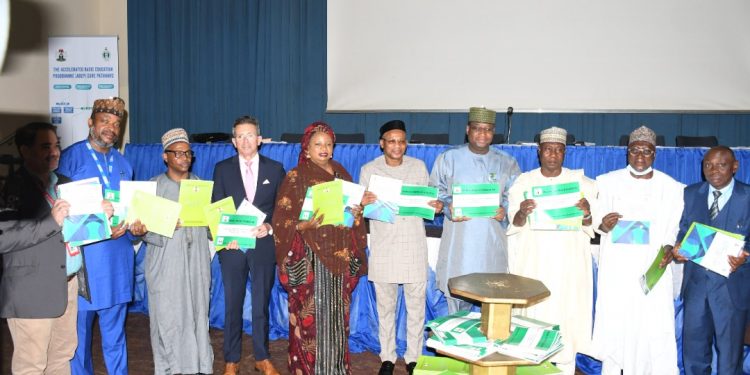The Federal government of Nigeria has launched the Accelerated Basic Education Programme, (ABEP) to ensure that out-of-school children return to school.
The launch is under the auspices of the Nigerian Educational Research and Development Council (NERDC) with funding support from the European Union and Plan International Nigeria.
At the event in Abuja, the Minister of Education, Mallam Adamu Adamu said this was part of the present administration’s quest for quality education for every Nigerian child.
The Minister of Education, Mallam Adamu Adamu who was represented by Director of Reform Coordination and Service Improvement, Ministry of Education, Mr Ishaku Abdulwasiu said this became necessary to reduce the number of out-of-school children to the barest minimum.
He said: “The goal of this programme is to mop up and reduce to the barest
minimum a large number of overage and out-of-school children who are
disadvantaged and marginalised.
“Although this programme is well-thought-out and properly designed, there is a compelling need to validate its usability and effectiveness within the educational landscape.”
He said the ministry would support and ensure the sustainability of the Accelerated Basic Education Programme products, through an effective policy framework and monitoring structure.
On his part, the Executive Secretary, National Educational Research and Development Council, (NERDC) Professor Ismail Junaidu noted that to ensure sustainability and effective implementation of the programme, the council had developed guidelines to provide necessary details to support states and partners through the training and retraining of teachers who are the critical stakeholders.
“The Accelerated Education Programmes is today used as a standard descriptive term for the flexible, age-appropriate education programme and run in an accelerated timeframe that provides pathways to mainstreaming learners into relevant levels of schooling based on proper profiling.
“The overarching objective of ABEP is to provide an alternative educational
programme suitable for the needs of overage out-of-school children and youths, and in the process mainstream them to regular school programme or provide them with alternative career path through enrolment into vocational training centres.” Prof Junaidu said.
In his remarks, the Country Director Plan International Nigeria, Mr Charles Usie who noted that the programme had been tested in Borno and Yobe as the pilot states, called on all stakeholders to fund and prioritise education.
According to Usie, “Prioritising education gives an opportunity for one to thrive, an opportunity to fight in life and be productive in life,” We are celebrating another opportunity for Nigerians who will otherwise have no chance in life.”
“This launch today is sacred, we are already testing this product and we are facing the right direction because it has worked in Borno and Yobe states.”
The Country Director said education remains the major channel that can contribute to national development.

